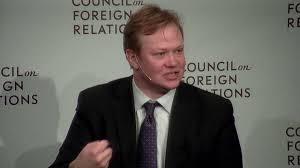Brad W Setzer, a long term and very intuitive Turkey observer wrote about the malaise surrounding Developing Nations in his 27 May article at Foreign Affairs, titled “The COVID-19 Crisis in Emerging Markets Demands a Once-in-a-Century Response”. Part of the article relates to Turkey, which Setzer calls “in trouble before the Covid-19 outbreak”. PA Turkey publishes parts of the lengthy article which pertains to Turkey:
The novel coronavirus plunged emerging markets into crisis. As investors rushed to safety, major emerging economies lost more than $100 billion in foreign currency reserves in the month of March alone. Trade flows shrank. New capital inflows dried up. In many ways, the pandemic has been harder on emerging economies than the 2008 global financial crisis.
Another group of emerging markets is not at immediate risk of default but faces significant financial pressures that will undermine growth and thus the global economy. This group includes countries, such as Brazil and Indonesia, that have seen rapid capital outflows and the withdrawal of foreign financing. It also includes countries that are now experiencing large falls in commodity exports and thus pressure on their current accounts from falling trade. Even if these countries are not in urgent need of standard bailouts from the International Monetary Fund (IMF) to avoid default, the actual and perceived constraints on their ability to borrow may prevent them from spending all that they should to combat the pandemic.
Some countries were in trouble before the corona pandemic
A third category of emerging economies, including Argentina, Lebanon, and in all probability, Turkey, was headed for trouble even before the pandemic and is likely to emerge from it in worse shape still. The IMF has the tools to handle this most troubled category; governments in these countries are likely to be desperate enough to eventually seek traditional IMF programs conditioned on deep structural and fiscal reforms. But the countries that are in a slightly less precarious position—weakened by the coronavirus, but not yet on the verge of economic and financial collapse—face an uncertain future. The IMF doesn’t have effective instruments to help countries that are too strong to accept traditional conditionality but too weak to stand entirely on their own during a pandemic. The novel coronavirus thus poses a stress test for the IMF as well as for emerging economies—and it is one that the IMF may not pass.
CLASSIC CRISES, CLASSIC FIXES
The countries that were headed toward difficulty or default before the pandemic are now in the worst shape financially, but they are also the easiest cases to resolve. Take Lebanon, for example, which took on enormous debts in recent years to finance fiscal and trade deficits. Last fall, the government took steps to close the budget deficit, but those measures triggered political protests that eventually brought down the government. Since then, Lebanon’s central bank has burned through nearly all of its usable foreign currency reserves trying prop up the value of the Lebanese pound. As a result, it can’t repay the dollars it has borrowed from Lebanese banks. Lebanon needs to restructure its domestic banking system as well as its government’s external debt. It is now poised to accept a classic conditional IMF program.
Turkey was on a similarly worrying trajectory prior to the pandemic. Turkey didn’t—and still doesn’t—have dangerously high levels of fiscal debt, and it isn’t heading for a sovereign bond default. But not all financial problems stem from government borrowing. In an effort to mask its low level of foreign currency reserves, the Turkish government used regulatory incentives to encourage its banks to borrow foreign exchange from abroad and deposit it at the central bank. Turkish banks have eagerly done so, but those borrowed reserves will ultimately have to be paid back. As a result, they don’t give the central bank the level of protection it needs to bring interest rates below the rate of inflation, as President Recep Tayyip Erdogan has called on the bank to do.
Last fall, Turkish state banks went on a lending spree designed to pull the country out of the recession that followed its 2018 currency crisis. But rising lending quickly put Turkey’s trade back into deficit. Rather than allow the Turkish lira to fall and find a new equilibrium, the government began selling off its remaining foreign exchange reserves to prop up the currency. Now, with the added stress of the coronavirus, Turkey is almost certainly headed for a classic balance-of-payments crisis.
Excerpt only
You can follow our English language YouTube videos @ REAL TURKEY: https://www.youtube.com/channel/UCKpFJB4GFiNkhmpVZQ_d9Rg
And content at Twitter: @AtillaEng
Facebook: Real Turkey Channel: https://www.facebook.com/realturkeychannel/
